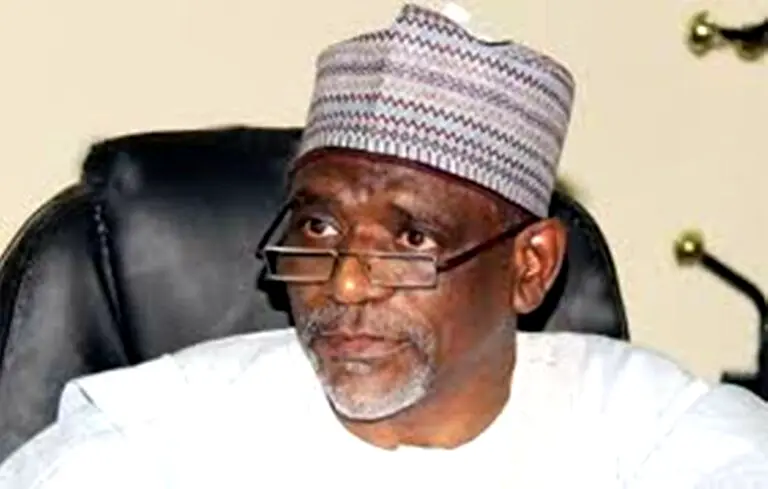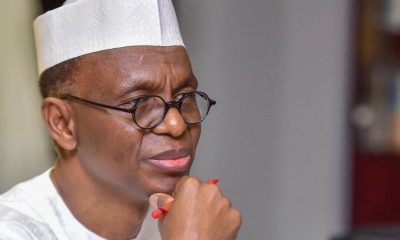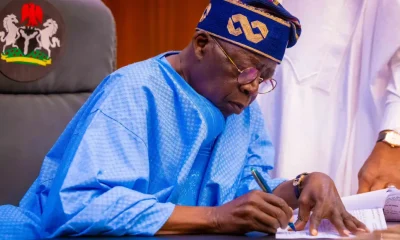Editorial
ASUU Strike: The No-Work, No-Pay Stand-off

As acrimonious as the latest soundbites from them have been, it is relieving to hear both sides of the protracted industrial dispute in the nation’s universities talking again on what should happen after the strike is called off. Before now, mum had been the word from the Minister of Education, as students of public universities vegetate at home with their future being blatantly taken from them. The government of President Muhammadu Buhari has hitherto shown a “provocative indifference” to the industrial dispute, which started on February 14, 2022, even as the Academic Staff Union of Universities (ASUU) is bent on having its way. If the history of previous strikes and their resolution is anything to go by, the current exchanges or spat between both parties is a telltale sign that the debilitating action is in its twilight, although this optimism is attenuated by the current grandstanding and subtle blackmail over the casus belli usually associated with an action that has run its course.
Reports from Tuesday’s meeting between both parties have it that members of the Professor Nimi Briggs re-negotiation Committee did not table any new offer other than pleading with the lecturers to suspend the ongoing strike, with promises that their concerns will be included in the 2023 budget. The leadership of ASUU, who would have none of that, staged a walkout from the negotiation, which lasted about three hours. The ASUU President, Prof Emmanuel Osodeke, would later follow with a statement where he disclosed that the union told the federal government through the ministry of education to return to the New Draft Agreement of the 2009 FGN/ASUU Renegotiation Committee, whose work spanned a total of five and half years as a demonstration of good faith. He added that “the Munzali Jibril-led renegotiation committee submitted the first Draft Agreement in May 2021, but the government’s official response did not come until about one year later! Again, awards presented by the Nimi Briggs-led Team came across in a manner of take-it-or-leave-it on a sheet of paper. No serious country in the world treats their scholars this way.”
Notwithstanding this grouse of the lecturers, the federal government feels good enough to encourage students affected by the prolonged shutdown of the universities to “take ASUU to court” and claim damages incurred over the period the strike lasted. This position was conveyed by the Minister of Education, Adamu Adamu, who stated that there should be consequences and even deterrence for the over six-month shutdown of the country’s public universities. Speaking yesterday at the Ministerial Media Briefing organized by the Presidential Communications Team at the Presidential Villa, Abuja, Adamu disclosed that “all contentious issues between the government and ASUU had been settled except the quest for members’ salaries for the period of the strike be paid, a demand that Buhari has flatly rejected.” In an apparent reference to the no-work-no-pay policy of the federal government pertaining to strikes, he pointed out that the government refused the lecturers’ demand to be paid the salary backlog because it believes there has to be penalties for their action.
It would be recalled that the federal government applied this measure to members of the Joint Health Services Union (JOHESU), whose salaries were withheld for the three months they were on strike in 2018. It was at the point of approving the release of funds for the salaries of resident doctors who were on strike in September and October 2021 that the President “pardoned” the health workers by ordering the payment of their seized salaries. Buhari believes that ASUU should not just get away with shutting public universities all this while. It is hard to fault this stance since Section 43 of the Trade Dispute Act 2004 prohibits salary payment to striking workers. More so, the federal cabinet had approved a 2017 white paper on the report of a technical committee that was meant to stem the tide of industrial disputes in the country, leveraging the above law. We also recall that in January 2014, a rights lawyer prayed the National Industrial Court sitting in Abuja to compel the university lecturers to refund the five months’ salaries paid to them by the federal government while ASUU was on strike, stressing that the lecturers were paid in violation of Trade Disputes Act.
In response to the federal government’s insistence on the non-payment of the lecturers over the industrial action, ASUU has asserted that the affected students may as well forget about unfinished academic sessions. Speaking with Channels TV, Osodeke said, “If we agree (to the government’s threat), therefore, the lectures we should have given (to students) for 2020/2021 and 2021/2022 [sessions], should be allowed to go, so we start a new session, 2022/2023, in September… When we go back today, we are going to start from the 2020/2021 session. For these two sets of students admitted by JAMB, we must teach them over these periods to ensure that we meet up with the system. So, we are going to do the backlog of the work we have left behind. We are not going to start today and say: ‘This session is 2022/2023. Therefore, all these two sets of people that have been admitted by JAMB are cancelled. We have to take another admission for the 2023/2024 session’.” What is clear from the present impasse is that it boils down to the lecturers’ emoluments without any pretension that their “Aluta” is for better funding and improvement of dilapidated infrastructure in the universities.
This current stand-off has thrown up a situation where it will either be no-work-no-pay or no-pay-no-work. Yet, a simple transposition of the words in both phrases presents them as the same. The government’s no-work-no-pay policy on lecturers and ASUU’s no-pay-no-work also align in leaving students with the shortest end of the stick! Naija News vehemently repudiates this exploitation of young citizens who could be the country’s greatest contribution to the world. Only recently, an alumnus, Dr. Philip Ozuah, who now owns a chain of hospitals in the United States, donated USD1million to the University Medical College, Ibadan. Most of the chief execs of blue chip companies in America’s Silicon Valley, as well as the head of the IMF, are Indians who obtained their first degrees from Indian universities. How can this be the lot of Nigerian youth if the federal government and ASUU continue this Russian roulette with the country’s future?
Nigerian students have suffered enough from incessant strikes, and both parties must spare a thought for them and their long-suffering parents. As if their travail is not enough, Minister Adamu even wants them to drag ASUU to court and, by so doing, expose themselves or their children to vicious witch-hunting that won’t allow them to graduate or be admitted into any other public university when rusticated. Of course, the no-work-no-pay rule has been in the country’s statute books since the 1990s, but when negotiating an end to a prolonged strike, trade unions always flash the “non-victimization” clause. We call on the Buhari government to be sure it wants to end this trend. Else it should back down now lest there will be a situation where the ongoing strike unduly lingers, only for ASUU to be eventually pardoned like JOHESU was.
Regrettably, the collective interest of Nigerian students has been thrown out of the window. With an academic session already lost and distractions at every turn, these undergraduates would have forgotten what they were taught before the strike. When called off, we demand that these students be given a refresher on previous lectures, rather than having to skip a semester’s or session’s course works, as ASUU is threatening against the no-work-no-pay. It’s counterproductive for the government to go this route, especially as funds for the withheld salaries are already budgeted, disbursed, and now accruing interests in various banks. As ASUU checkmates the government with their no-pay-no-work, Naija News expects that should the government succumb, they will be conscientious enough not to rush the poor students through the syllabus or make them immediately sit for examinations in a bid to meet up with the calendar. In the final analysis, this newspaper demands that when embarking on prolonged strikes, the organized labour must be ready to pay members’ salaries. After all, trade unions in other jurisdictions maintain a strike fund from where their members draw salaries whenever they down tools.












